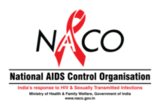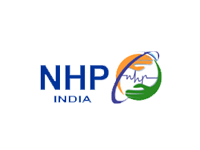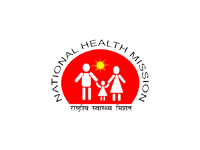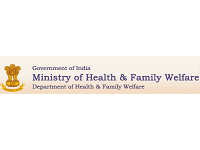The Basic Services Division of National AIDS Control Organisation provides HIV Counseling and testing services for HIV infection, the critical first step in detecting and linking people with HIV to access treatment cascade and care. It also provides an important opportunity to reinforce HIV prevention. The national programme is offering these services since 1997 with the goal to identify as many people living with HIV, as early as possible (after acquiring the HIV infection), and linking them appropriately and in a timely manner to prevention, care and treatment services. The introduction of ART services for people living with HIV/AIDS in 2004, gave a major boost to Counseling and testing services in India.
The HIV Counseling and testing services include the following components:
- HIV counselling for at Risk Population
- Elimination of Vertical Transmission of HIV & Syphilis
- HIV/Tuberculosis collaborative activities
- Consultation on Sampoorna Suraksha Strategy
- Final Guidance Note (Version -iv) on SSS
- Operational Guidelines on Sampoorna Suraksha Strategy 1st Cut
The Basic Services Division through Integrated Counseling and Testing Centres (ICTCs) provide HIV counseling & testing services, Prevention of Parent to Child Transmission of HIV (PPTCT) services and HIV-TB cross referrals. These services have linkages with TI NGOs/CBOs and outward linkages with ART centres, outreach services, peer support services, OI management and home based care. NACP-IV envisages integration and scale-up of service delivery to sub-district and community levels through existing infrastructure in the public and private sectors.
HIV & Other co-infection collaborative activities
HIV/TB Co-ordination Meeting Details
Recording and Reporting Tool in respect of FICTC/ PPP ICTC conducting single HIV Test
Format for FICTC, PPP ICTC Register Download (38.4 KB) 
Format for FICTC,PPP ICTC Monthly Progress Report Download (16 KB) 
Data definition for FICTC, PPP ICTC Monthly Progress Report indicator Download (18 KB) 
Software: PALS (PL-HIV ART Linkage System) Link
Consultation Report on Sampoorna Suraksha Strategy
Final Guidance Note (Version -iv) on SSS
Operational Guidelines on Sampoorna Suraksha Strategy
Sampoorna Suraksha Strategy
We have reached a critical junction which requires concerted efforts to attain 95-95-95 targets by 2025 and ultimately achieve the goal of ending the epidemic by 2030. To achieve this ambitious goal, intensified preventive efforts are needed to accelerate reduction in the new infections to further curb new HIV infections and avert AIDS-related deaths at much higher rates. In order to reach out the population “At Risk” for HIV and STIs with a comprehensive preventive services delivery package, NACO has envisaged a new form of “Immersion Learning Model” of Service delivery as ‘Sampoorna Suraksha Strategy’ under Global Fund Grant 2021-24 with the goal of arresting the spread of HIV by effectively targeting and tailoring interventions to prevent HIV transmission.
To ensure potential output, bridging the gap and Country progress on SDG for HIV/AIDS epidemic. NACP-V is all set to implement innovative programs, which includes Sampoorna Suraksha Strategy, which is the first step towards “breaking the silos and building the synergies”. It aims to provide comprehensive services package delivery system under NACP-V. Sampoorna Suraksha Strategy aims to cover “at Risk” HIV negative population through a cyclical and comprehensive package of services as per their needs to keep them HIV free and thus boosting country progress on prevention of new infection.
Hence, Sampoorna Suraksha Strategy (SSS) will enable wider outreach and service delivery models to prevent HIV infections in locations and population groups that are “At Risk” for HIV and STIs and are affected by the epidemic i.e. HRG Population not associated with Targeted Intervention Project or those who are operating through virtual platform will be covered with differentiated approach by providing them the comprehensive services package in a stigma free environment.
The primary beneficiaries of Sampoorna Suraksha initiative are the direct-walk in Clients at ICTC/DSRC, who perceive themselves at the risk of HIV infection because of their past/current HIV related risk behaviour, their partners/spouses, and those who are identified to be at risk otherwise.
NACO has rolled out the Sampoorna Suraksha Strategy as an immersion learning model at 150 selected facilities in 150 districts of 20 States under Global Fund Grant 2021-24. These facilities are being re-modelled and branded as Sampoorna Surakhsa Kendra (SSK). The learnings from implementation will be used to modify, tweak the strategy and strengthen the outreach strategies and service delivery mechanism under NACP –V in future.

























